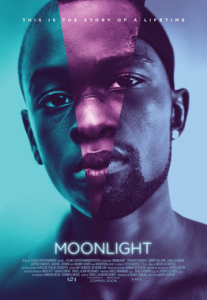The royal we—who knew it actually had a royal history? I had only heard it used in reference to couples who, upon coupling, start using “we” instead of “I” when referring to themselves. Suddenly, “I saw the movie” becomes “We saw the movie,” “I love museums” becomes “We love museums,” and so on. However, as it turns out, the royal we actually has monarchical origins. Originally, this phenomenon referred to the switching of “we” for “I’ by a monarch or person in power. According to Robert Hodge in Literature as Discourse, the use of the royal we can both signify one’s power and the transcendence of one’s own individuality.
In my opinion, this use of “we” can be manipulative. It pulls in other people who may or may not agree with the statement. Maybe someone’s partner doesn’t actually love museums or maybe a member of a society does not agree with a monarch’s actions, but they are implicated nonetheless. From now on, when I refer to the royal we I am referring to this very action—the use of “we” to pull others into and implicate them in another individual’s experience or opinion.
This “we” pops up in cultural criticism. Both Hilton Als in “‘Moonlight’ Undoes our Expectations” and Clive James in “Thrones of Blood” invoke this powerful and transcendent we. However, they each do so in very different terms to, I will argue, very different effects. Als uses “we” sparingly and startlingly, while James uses we as a workhorse pronoun, popping it into sentences time and again.
From afar, these two pieces share many similarities. Both of these pieces examine video works—Als focuses on the movie “Moonlight” and James critiques the television series “Game of Thrones.” Each critic explicitly incorporates their individual stories and perspective. Both works also like the works they are reviewing, ultimately putting them forth as worthy of the reader’s time.
And yet, their use of a single pronoun sets them apart.
In ‘Moonlight’ Undoes our Expectations,” Als takes the viewer through “Moonlight”’s exploration of black queerness, which taps into Als own experiences and also, in Als’s own words, “avoid[s] the overblown cliches so often used to represent black American life in film.” From beginning to end, Als guides us through the plot of the movie, peppering in “zoom outs” that incorporate context (like the director Barry Jenkin’s possible cinema influences), audience reactions to the film (like when utterance of “faggot” caused the audience to freeze), and personal information (like “every queer kid’s revenge fantasy”). Als manages to tell the story of “Moonlight” as a film that, on the surface, traces the evolution of a young queer black man, but, going deeper, does something radically new. It’s honest—Als shows us this.
Within Als’s sea of prose, “we” pops up sparingly. And, when it does, it is shocking. It reminds me of the first time Frank Underwood looks the viewer in the eye in “House of Cards,” implicating us in the world of Underwood, when Fleabag winks at the viewer in “Fleabag,” pulling us into a deceptively amiable friendship, or when Elliot asks if we can see what he is seeing in “Mr. Robot.” When Als writes it for the first time, it caught me off guard. In the middle of a sentence, he sneaks it in: “…we can’t help thinking…” It stopped me in my tracks—he sees me? He is welcoming me into his experience? It was shocking, yet warm. It asked me to take part. And later, when he says “…we wince…” it was like we are sitting in the screening room together. I could feel the wince, the cascading tightening sensation rolling from my eyes to my toes, as if someone had just poured ice water over my head.
Als uses the we, not coercively, but as a way to welcome the reader to sit beside him in the theater. He does not tell me what my judgments are, but what experience the movie offers.
I believe James thinks he is offering a similar gesture with his use of we. I should disclose, that unlike “Moonlight,” I have seen the work that James reviews. I am a former “Game of Thrones” enthusiast who has since grown thoroughly weary and, at times, incredibly angry with the show. I assume that this is part of the reason why James’s review irks me so much. And yet, his use of “we” keeps me from being even just pleasantly indifferent to the article.
His lengthy recap of “Game of Thrones” begins from a very touching place. James has leukemia, which has left him without “a chance,” but also without “an end date, either.” This illness has left him with downtime during which he, and sometimes he and his daughter, watch television series. It is such a touching way to frame the piece that it leaves me feeling guilty for not liking the article.
From afar, “Thrones of Blood” walks us through the series, gives us in depth introductions to several characters, traces plotlines, pinpoints artistic choices, and relates the series to a broader cinematic tradition. James uses his initial reluctance to watch the show as a way into the series. It’s clear that James then wrestles with his love of the show because he must walk us through every facet of his experience. James attempts to do too much in this article, it’s an exhaustive autopsy of the show, not a meaningful snapshot of it.
Throughout his tome, James implicates the reader time and again through the royal we and “us.” For instance, his reference to how “we click on Play All” (an option I’ve never heard of as I’m more accustomed to “Play Next” after each episode, but this a superficial infraction) trips me up, but not for long. Later, when he writes, “We felt shock when Ned Stark was decapitated, and when Tywin Lannister was killed,” I wholeheartedly agreed. I remember the swift head jerk and eye-widening these moments caused me. However, it is the barrage the sheer quantity of other we’s in the article, like “we, too” would make similar acting choices as Kit Harington, we depend on Ned Stark, “we” could not stop watching the show (an implication I strongly disagree with), “the dramatis personae contain plenty of characters we wouldn’t have minded seeing the back of,” and, in a twist of structure, “Tyrion Lannister is us,” that get exhausting.
Now, someone who loves “Game of Thrones” and strongly identifies with Tyrion Lannister may find great solace in James’s review. I, however, did not. Through his use of we and us, James implied that his observations and his opinions of the show were somehow mine too. In a show that struggles with gender, James assumes that his experience of watching a bevy of naked women was the same as my own. (After having watched the show with several men and women, I can say for certain that this is in no way guaranteed.) James’s use of we does not invite me to an experience like Als’s does, but tells me that an experience I do not recognize is my own. As an ardent contrarian, I cannot help but pull away.
Perhaps, this juxtaposition is entirely dependent on the fact that I do not like “Game of Thrones” and have not seen “Moonlight.” I am reluctant to concede this point entirely, however. Instead, I think that the fact I have seen “Game of Thrones” gives me insight into the foibles of the royal we. When it is invoked so many times, I pull back—that’s not what I think or see or feel.
When used sparingly, however, I welcomed Als use of “we” because it invited me to take a seat at the movie theater and imagine what viewing the movie could be like. Even if I had seen the movie, I think that Als’s review would maintain its friendliness by not assuming, time and again, that we have the same conclusions about the film. Again, Als does not tell me what my judgements would be, but rather what my experience could be. In comparison, James implicates me, the reader, in his own conclusions.
It seems that in both television shows and cultural criticism the use of a transcendent “we”—a “we” that forcibly implicates the viewer—is cropping up. It can be exciting to watch the fourth wall crumble and to feel welcomed into a character’s or writer’s experience. But this strategy must be used sparingly. Just as Frank Underwood does not turn to the camera after every major plot point nor should the critic call the viewer out after every observation. Pulling the reader into an experience repeatedly can get exhausting; there needs to be a balance between surrender and activation. I say, let me watch, let me wade into the critique a bit, let me find my footing in the universe you are describing, and then extend a hand asking me to sink a bit deeper. The power of the royal we demands respect, it is potent and, therefore, should be used sparingly.
The royal we brings up crucial questions in the field of criticism: how can critics draw the reader in without speaking for them? How can critics speak with conviction, but still remain aware that their opinion is not the end-all-be-all? And, finally, is there even room for these questions in criticism? Critics are not monarchs, nor are they our romantic partners. In the end, the royal we leaves me wondering: how can we define the relationship between critic and reader?



2,032 Comments
Only a smiling visitant here to share the love (:, btw outstanding layout. spurghi 24h inzago
Hello there, I found your site via Google while looking for a related topic, your website came up, it looks great. I have bookmarked it in my google bookmarks. pronto intervento spurghi milano
It’s like finding a secret note hidden inside an old book. There’s something so authentic and heartfelt about it. https://babblyng.com
I am interested in looking for more of such topics and would like to have further information. Hope to see the next blog soon. AI-Powered Language Acquisition
Hey there! Someone in my Facebook group shared this website with us so I came to check it out. I’m definitely enjoying the information. I’m book-marking and will be tweeting this to my followers! Superb blog and wonderful design. AI-Driven Language Tutoring
It’s like traveling through time and discovering something amazing from the past. Very inspiring! https://slovnikonline.info
Do you need more quality backlinks? Is your website under-performin g on the search engines? spurghi 24h milano
HappyToon 웹툰추천 : which has the largest number of webtoons currently being serialized. 웹툰추천
HappyToon 웹툰추천 : which has the largest number of webtoons currently being serialized. 웹툰추천
HappyToon 해피툰 : which has the largest number of webtoons currently being serialized. 해피툰
HappyToon 웹툰사이트 : which has the largest number of webtoons currently being serialized. 웹툰사이트
HappyToon 무료웹툰사이트 : which has the largest number of webtoons currently being serialized. 무료웹툰사이트
HappyToon 무료웹툰 : which has the largest number of webtoons currently being serialized. 무료웹툰
Wonderful article Thanks for sharing the information with us, ลิ้งรับทรัพย์ igoal88
We only go out to dinner once in a blue moon. Trang chủ CWIN
“Wow, this was such a great read! I love how you explained everything so clearly and made the topic easy to understand.
BET TO WIN BIG CASH- REGISTER & CLAIM FREE SIGN UP BONUS
Excellent website. Plenty of useful info here. I’m sending it to several friends ans also sharing in delicious. And of course, thanks for your sweat! como ir de porto seguro para caraiva
You got a very great website, Glad I discovered it through yahoo. como chegar em caraiva
Hello, I was looking on the internet and I ran into your website. Keep up the excellent work. superheroes for parties
Only a smiling visitant here to share the love (:, btw outstanding layout. Noleggio scale aeree Roma
Perhaps you should update the php server on your webhost, WordPress is kinda slow. Trasloco a Roma
Do you need more quality backlinks? Is your website under-performin g on the search engines? exotic dancing jobs
There’s something so enjoyable about reading the comments here. Maybe it’s because everyone has a unique way of saying something. It feels like we’re in a big conversation, where every voice has something valuable to add. This is one of the things I enjoy about being in an online community. https://detaobao.com/